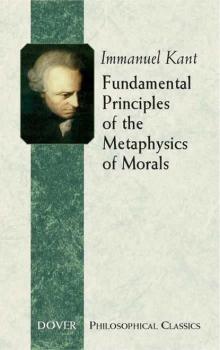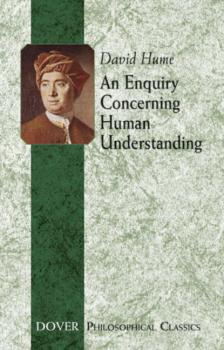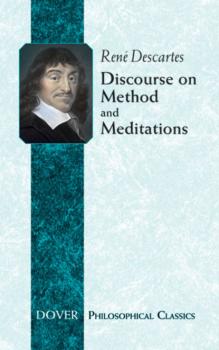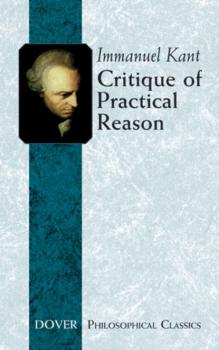ТОП просматриваемых книг сайта:
Философия
Различные книги в жанре Философия, доступные для чтения и скачиванияАннотация
"The best book on this subject that I have so far read; it genuinely does what its title implies." — Philosophical Books"Should be of great help in dispelling some of the mystery that surrounds the subject." — Review of MetaphysicsAt one time or another almost everyone has reflected upon the major existentialist themes: the sources of despair and suffering, the triumph over adversity, the nature and limits of reason, the encounter of the individual with other humans and with society, authenticity, death, and freedom. This book is for serious readers for whom previous accounts have been either too impressionistic or too limited in scope, and who wish to approach the original texts with perspective and critical understanding. Although this is a first-rate work of scholarship, no previous training in philosophy is required of the reader. The topical treatment introduces not only the existentialist position on each topic but also supporting arguments, historical context, and the line of criticism adopted by contemporary philosophers who oppose the existentialist stand. Readers will also be rewarded with a good knowledge of individual representatives of the movement, particularly Sartre and Heidegger.
Аннотация
Written in response to a book on the origins of morality by his erstwhile friend Paul Rée, the three essays comprising The Genealogy of Morals — all three advancing the critique of Christian morality set forth in Beyond Good and Evil — are among Nietzsche's most sustained and cohesive work.In the first essay — starting from a linguistic analysis of words such as «good,» «bad,» and «evil» — Nietzsche sets up a contrast between what he calls «master» morality and «slave» morality and shows how strength and action have often been replaced by passivity and nihilism. The next essay, looking into the origins of guilt and punishment, shows how the concept of justice was born — and how internalization of this concept led to the development of what people called «the soul.» In the third essay, Nietzsche dissects the meaning of ascetic ideals.It is not Nietzsche's intention to reject ascetic ideals, «slave» morality, or internalized values out of hand; his main concern is to show that culture and morality, rather than being eternal verities, are human-made. Whether or not you agree with all of his conclusions, his writing is of such clarity and brilliance that you will find reading The Genealogy of Morals nothing short of exhilarating.
Информация о книге
Автор произведения Friedrich Nietzsche
Жанр Философия
Серия Dover Thrift Editions
Аннотация
What is morally permissible, and what is morally obligatory? These questions form the core of a vast amount of philosophical reasoning. In his Fundamental Principles of the Metaphysics of Morals, Immanuel Kant developed a basis for the answers.In this landmark work, the German philosopher asks what sort of maxim might function as a guide to appropriate action under a given set of circumstances. By universalizing such a maxim, would morally permissible behavior not become clear? Suppose that everyone were to behave in accordance with this maxim. If everyone followed the maxim in the same way without harm to civilized culture, then the behavior would be morally permissible. But what if no one followed the maxim? Would civilization thereby be at risk? In such a case, the behavior would be morally obligatory.Kant's test, known as the Categorical Imperative, is a logical proof of the Golden Rule and the centerpiece of this work. It constitutes his best-known contribution to ethical discussion, and a familiarity with his reasoning in this book is essential to students of philosophy, religion, and history.
Аннотация
Two major works by one of history's best known and most widely read and studied philosophers. In Gorgias, an exploration of the proposition that it is better to suffer wrong than to do wrong, Socrates debates with an amoral young sophist and assets that it is preferable to endure someone else's bad conduct than to be the source of bad behavior.Timaeus relates a creation myth that concludes with the birth of humanity, in which Socrates demonstrates that morality is based on cosmic order. True morality, he maintains, is neither the product of human evolution nor an exercise of will, but an external manifestation of the soul's order and harmony. B. Jowett translation
Аннотация
One of philosophy's most widely read books and the best introduction to Hume's other works, this 1748 treatise offers an accessible account of the author's provocative notions about the limitations of the mind. Topics include the logical coexistence of free will and determinism and the deficiencies of religious doctrine.
Аннотация
The winning entry in a competition held by the Royal Norwegian Society of Sciences, Schopenhauer's 1839 essay brought its author international recognition. Its brilliant and elegant treatments of free will and determinism elevated it to a classic of Western philosophy, and its penetrating reflections still remain relevant.Schopenhauer makes a distinction between freedom of acting (which he endorses) and the freedom of willing (which he refutes). The philosopher regards human activity as entirely determined, but he also posits that the variety of freedom that cannot be established in the sphere of human activity resides at the level of individuated will — a reality that transcends all dependency on outside factors. Because the essay's clear and rigorous argument reveals many basic features of his thought, it forms a useful introduction to Schopenhauer for students of philosophy or religion.
Аннотация
Although he was born into slavery and endured a permanent physical disability, Epictetus (ca. 50–ca. 130 AD) maintained that all people are free to control their lives and to live in harmony with nature. We will always be happy, he argued, if we learn to desire that things should be exactly as they are. After attaining his freedom, Epictetus spent his entire career teaching philosophy and advising a daily regimen of self-examination. His pupil Arrianus later collected and published the master's lecture notes; the Enchiridion, or Manual, is a distillation of Epictetus' teachings and an instructional manual for a tranquil life. Full of practical advice, this work offers guidelines for those seeking contentment as well as for those who have already made some progress in that direction. Translated by George Long.
Аннотация
Is it possible to be certain of anything? If so, how? The father of modern philosophy and the founder of rational method in philosophical thought, René Descartes (1596–1650) sought the answers to these questions and in doing so, addressed the most important of methods of thinking and understanding truth. In <I>Discourse on Method,</I> he applies a scientific approach to philosophy that comprises four principles: to accept only what reason recognizes as «clear and distinct»; to analyze complex ideas by dividing them into smaller elements; to reconstruct the ideas; and to make accurate and complete enumerations of the data. His <I>Meditations</I> proceed according to this method, exploring the mind/body distinction, the nature of truth and error, the existence of God, and the essence of material things.
Аннотация
The second of Kant's three critiques, <I>Critique of Practical Reason</I> forms the center of Kantian philosophy; published in 1788, it is bookended by his <I>Critique of Pure Reason</I> and <I>Critique of Judgement</I>. With this work Kant establishes his role as a vindicator of the truth of Christianity; he approaches his proof by presenting positive affirmation of the immortality of the soul and the existence of God. The philosopher offers an argument concerning the <I>summum bonum</I> of life: people should not simply search after happiness, but follow the moral law and seek to become worthy of the happiness that God can bestow.<BR>This <I>Critique</I> comprises three sections: the Analytic, the Dialectic, and the Doctrine of Method. The Analytic defines the ultimate moral principle, the categorical imperative, and argues that to obey it is to exercise a freedom. The Dialectic make the assumption that immortality and God exist, arguing that pure practical reason falls into error when it expects perfection in this world; we should anticipate finding perfection in the next world, with God's help. The final section, the Doctrine of Method, offers suggestions in educating people in the use of pure practical reason.<BR>A seminal text in the history of moral philosophy, this volume offers the most complete statement of Kant's theory of free will and a full development of his practical metaphysics.
Аннотация
One of the most influential books in the history of Western thought, The Consolation of Philosophy was written in a prison cell by a condemned man. Anicius Manlius Severinus Boethius (c. 480–524) was a Roman scholar, theologian, philosopher, and statesman. Imprisoned by the Ostrogothic king Theodoric, probably on trumped-up subversion charges, he was thrown into a remote prison where he was eventually executed.While awaiting his fate, he wrote this dialogue in alternating prose and poetry between himself and his spiritual guardian. Its subject is human happiness and the possibility of achieving it in the midst of the suffering and disappointment that characterize human existence. As Richard H. Green notes in the introduction, «For the reader of the Christian Middle Ages, The Consolation of Philosophy celebrated the life of the mind, or reason, and the possibility of its ultimate victory over the misfortunes and frustrations which attend fallen man's pursuit of transitory substitutes for the Supreme Good which alone can satisfy human desires.»Mr. Green's translation is quite literal in order to remain as faithful as possible to Boethius's original meaning. He has also provided an informative introduction and notes. The result is a superbly accessible edition that still exercises a powerful influence on contemporary thinkers and theologians and represents a source of comfort and solace for the general reader.










